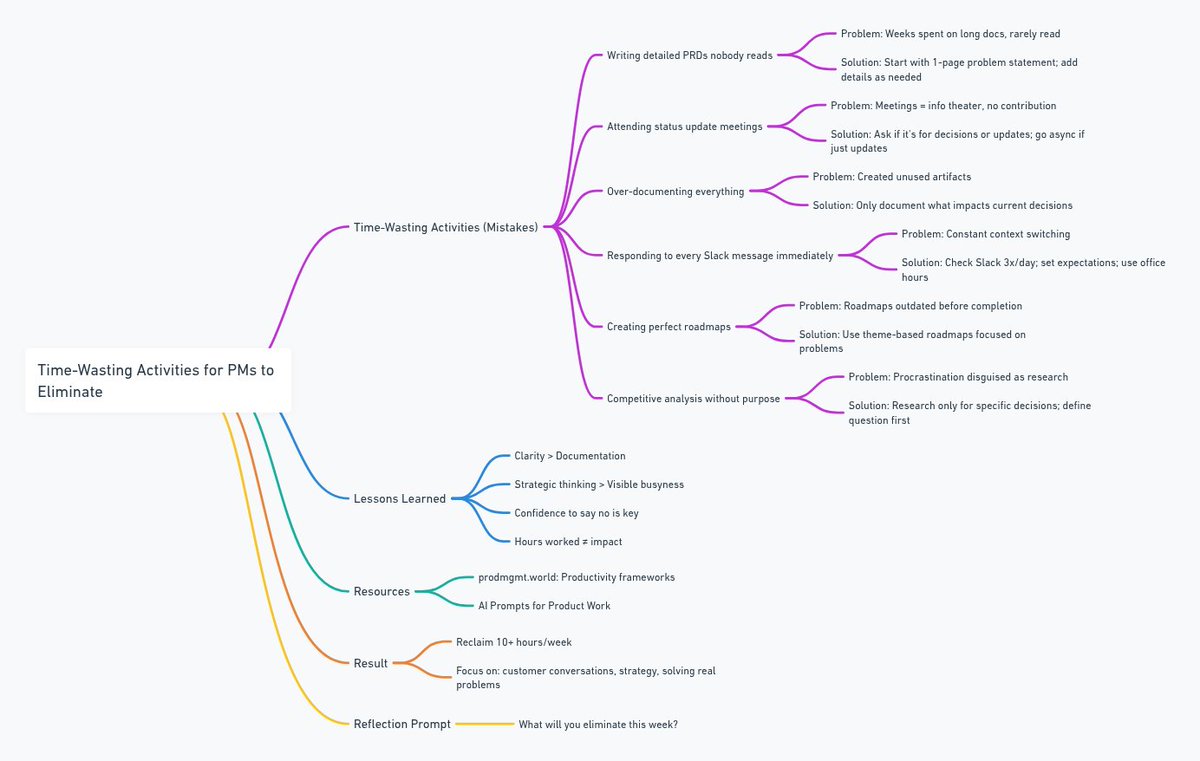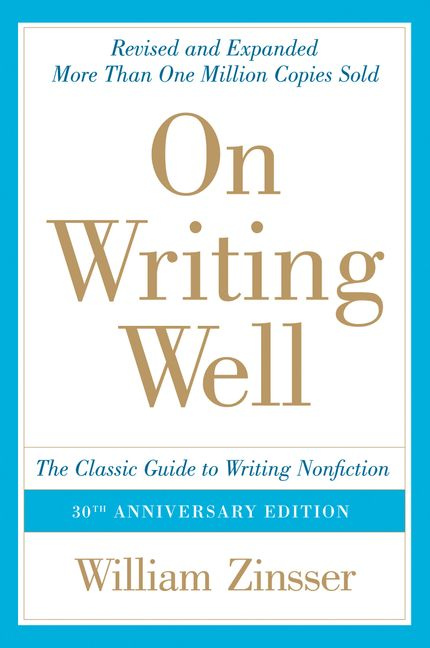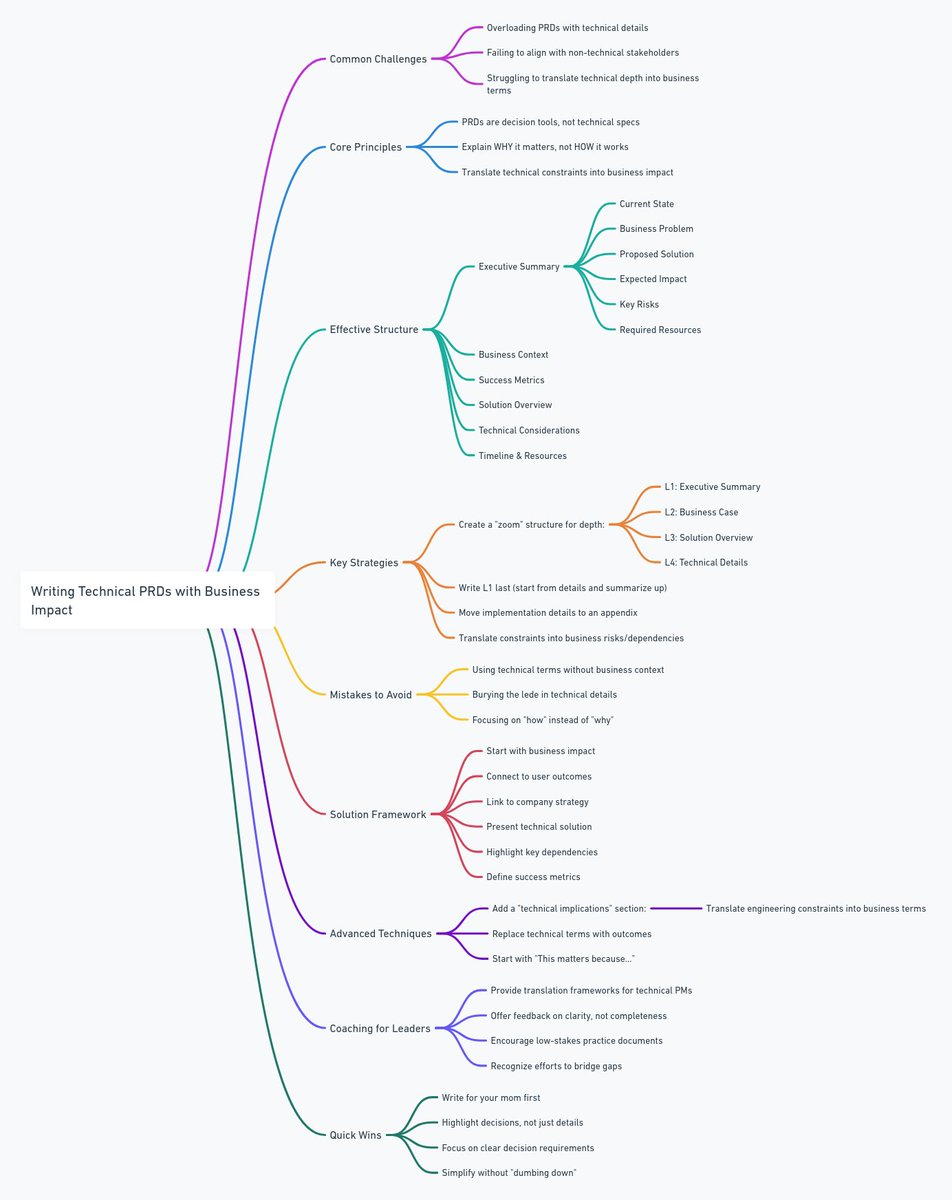"Everyone can now vibe code features - CPO, customer success, data analysts."
PM's immediate reaction: "If everyone's building... what makes me irreplaceable?"
I watched this exact conversation unfold. The conclusion might surprise you: 🧵
PM's immediate reaction: "If everyone's building... what makes me irreplaceable?"
I watched this exact conversation unfold. The conclusion might surprise you: 🧵
The PM's fear is real:
• CPO has strategy vision AND can build
• CX has customer proximity AND can build
• Data analysts have insight depth AND can build
• Engineers have technical judgment AND can build
Where's the PM's unique value?
• CPO has strategy vision AND can build
• CX has customer proximity AND can build
• Data analysts have insight depth AND can build
• Engineers have technical judgment AND can build
Where's the PM's unique value?
Standard advice: "Become an amplifier! Be the synthesizer! Orchestrate the chaos!"
But here's the brutal truth:
Engineers can orchestrate features.
AI can synthesize insights.
Anyone can "amplify" with the right tools.
But here's the brutal truth:
Engineers can orchestrate features.
AI can synthesize insights.
Anyone can "amplify" with the right tools.
So I asked: "What would have to be true for your fear to become reality?"
The PM started mapping it out:
If vibe coding + AI synthesis + basic project management = product success...
Then yeah, PMs become redundant.
The PM started mapping it out:
If vibe coding + AI synthesis + basic project management = product success...
Then yeah, PMs become redundant.
The conditions for PM obsolescence:
✅ Building barriers removed (vibe coding)
✅ Information synthesis automated (AI)
✅ Customer feedback directly accessible (CX tools)
✅ Data insights democratized (analytics platforms)
✅ Strategic context transparent (company wikis)
✅ Building barriers removed (vibe coding)
✅ Information synthesis automated (AI)
✅ Customer feedback directly accessible (CX tools)
✅ Data insights democratized (analytics platforms)
✅ Strategic context transparent (company wikis)
When you map it out like this...
a) we're not there yet, but
b) the traditional PM skillset does start looking pretty replaceable.
"But I coordinate!" → Project managers do that
"But I prioritize!" → Anyone with frameworks can do that
"But I synthesize!" → AI does that faster
a) we're not there yet, but
b) the traditional PM skillset does start looking pretty replaceable.
"But I coordinate!" → Project managers do that
"But I prioritize!" → Anyone with frameworks can do that
"But I synthesize!" → AI does that faster
The PM realized something chilling:
"I'm becoming an account manager for features that other people build, prioritize, and improve."
That's not product management.
That's overpaid pencil-pushing.
"I'm becoming an account manager for features that other people build, prioritize, and improve."
That's not product management.
That's overpaid pencil-pushing.
Most "solutions" I hear are just delaying tactics:
"Build better relationships!"
"Get closer to customers!"
"Learn to code!"
But if your core value prop can be replicated...
You're just buying time until someone replicates it.
"Build better relationships!"
"Get closer to customers!"
"Learn to code!"
But if your core value prop can be replicated...
You're just buying time until someone replicates it.
The real question isn't:
"How do I adapt to democratized building?"
It's:
"What is the one thing I do that nobody else can replicate - even with all these tools?"
"How do I adapt to democratized building?"
It's:
"What is the one thing I do that nobody else can replicate - even with all these tools?"
Because here's what I realized:
Every other role has a core that's hard to replicate:
• Engineers: Complex system design
• Designers: Human-centered problem solving
• Data scientists: Statistical modeling
What's the PM equivalent?
Every other role has a core that's hard to replicate:
• Engineers: Complex system design
• Designers: Human-centered problem solving
• Data scientists: Statistical modeling
What's the PM equivalent?
I don't have the answer yet.
But I know it's not "coordination" or "synthesis" or "stakeholder management."
Those are table stakes now.
The question that keeps me up: What IS the irreplaceable PM superpower?
What do you think? 👇
But I know it's not "coordination" or "synthesis" or "stakeholder management."
Those are table stakes now.
The question that keeps me up: What IS the irreplaceable PM superpower?
What do you think? 👇
• • •
Missing some Tweet in this thread? You can try to
force a refresh







